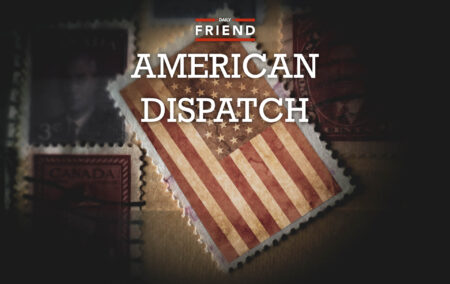The greatest danger, says author and Cold War scholar Mary Sarotte, is avoiding inadvertent escalation that could lead to nuclear catastrophe.
The challenge is finding a way to stop the violence. Speaking at a Hoover Institution forum on 4 March, Sarotte called the Ukrainian conflict the greatest threat to world peace since the 1962 Cuban missile crisis.
Currently teaching at Harvard, Sarotte called the conflict a breaking point in modern history. She and other eminent historians agree that Ukraine’s geographical position and complicated history make it a lynchpin in European security.
She said if the war continued, Russia’s economy would plunge to the level of North Korea. Referring to the punishing sanctions imposed by the West, Sarotte said there was now a contest between ‘banks and tanks’.
The forum, moderated by Hoover historian Niall Ferguson, is accessible here:
On 2 March John Mearsheimer, a respected international relations professor at the University of Chicago, said the United States bore considerable blame for the Russian invasion.
Addressing the Washington-based Committee for the Republic, Mearsheimer said US involvement in the 2014 Maidan revolution in Ukraine was instrumental in Russian president Vladimir Putin’s decision to seize Crimea only days later.
Russia, he argued, would ultimately win. ‘We (the west) poked the bear in the eye and the bear will tear Ukraine apart.’ Even if the Russians failed to subdue the territory, Mearsheimer said, ‘the Russians will crush Ukraine and reduce its cities to rubble’.
Ignored repeated warnings
Mearsheimer said successive US administrations ignored repeated warnings from Moscow that Ukraine’s integration into the West posed an existential threat to Russia and would not be allowed.
The Russians acquiesced, he said, to two rounds of Nato expansion but drew the line with Ukraine. For Russia, he said, the threat worsened in 2021 when president Zelensky spoke of taking back Crimea and Nato increased arms supplies to Ukraine.
‘We led Ukraine down the primrose path,’ he said, essentially making it a de facto Nato member. The first miscalculation came in 2008 when Nato members promised Ukraine and Georgia eventual membership.
While strongly criticizing the Russian invasion, Mearsheimer dismissed the popular view that Putin was mentally unstable or seeking to recreate a Russian empire. Rather, he continued, Putin was determined to prevent Ukraine becoming part of the
West. Yes, he conceded, Ukrainians were fighting for freedom but when a dominant power next door was existentially threatened, ‘might makes right’. Tragically, he said, Ukrainians were the losers.
Concerning sanctions, Mearsheimer said there was evidence that nationalism grew in response to sanctions. It was highly unlikely, he said, that sanctions would lead to revolt and Putin being removed.
If the West miscalculated so too did Putin, who grossly underestimated Ukraine’s unity and determination to fight. Two weeks into the invasion, Putin’s objectives have not been achieved and virtually the whole of Europe is united against Russia.
Unable to access its frozen assets, with most of its trade with the West curtailed, Russia has only China as an ally.
Way out
Leaving aside whether Putin remains in office, Russia, for the sake of world peace, requires a way out of the disaster. This is the task of diplomacy that has yet to be asserted.
Oxford University historian Robert Service, also currently at Hoover in Palo Alto, says Putin cannot allow democracy to take hold in Ukraine for fear that it would spread to Russia.
Service says Putin despises Vladimir Lenin, blaming him for carving greater Russia into disparate Soviet republics. Despite that, Putin would be wise to recall Lenin’s prescient words that ‘there are decades when nothing happens, there are weeks when decades happen.’
The map of Europe is being redrawn before our eyes.
The views of the writer are not necessarily the views of the Daily Friend or the IRR
If you like what you have just read, support the Daily Friend

